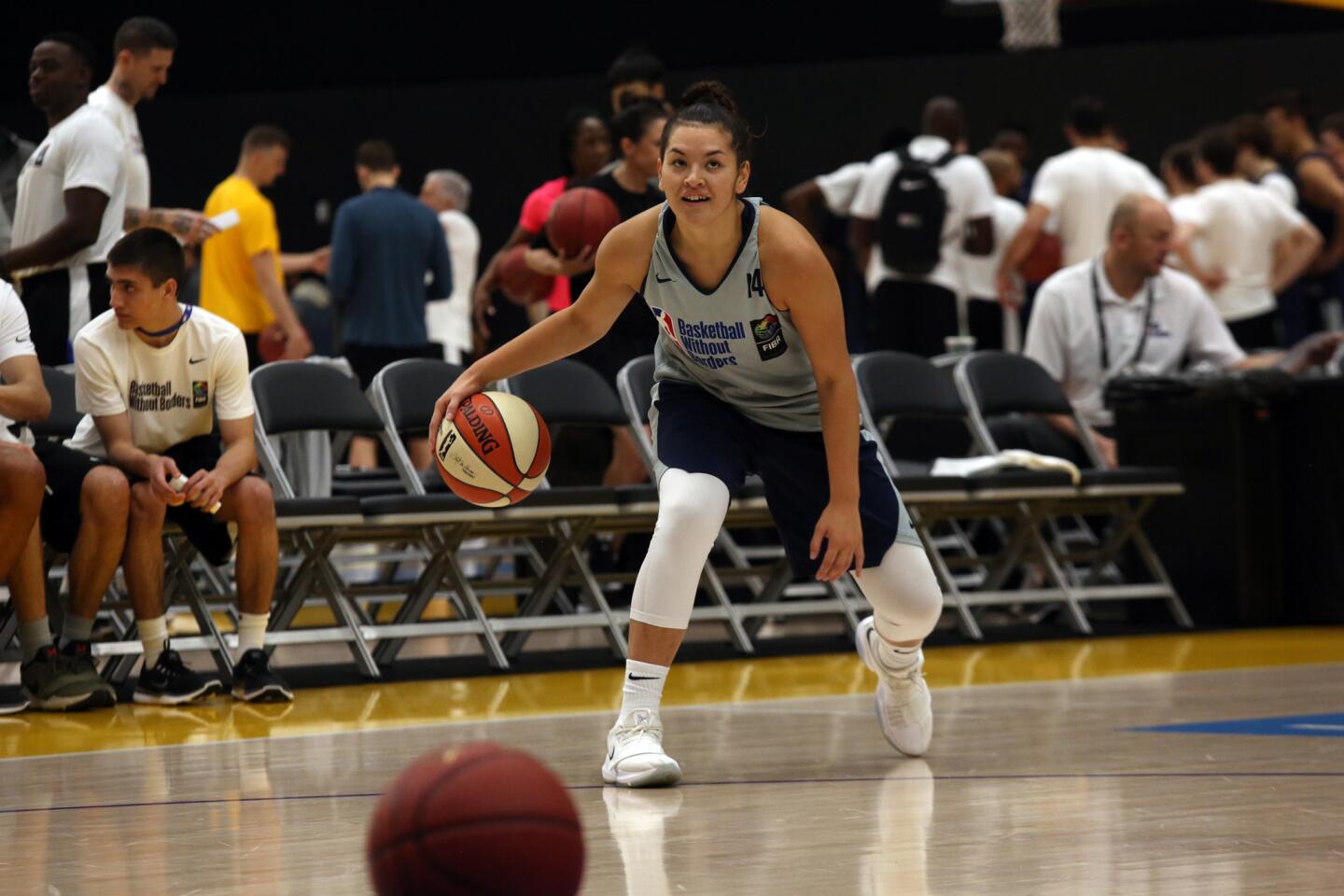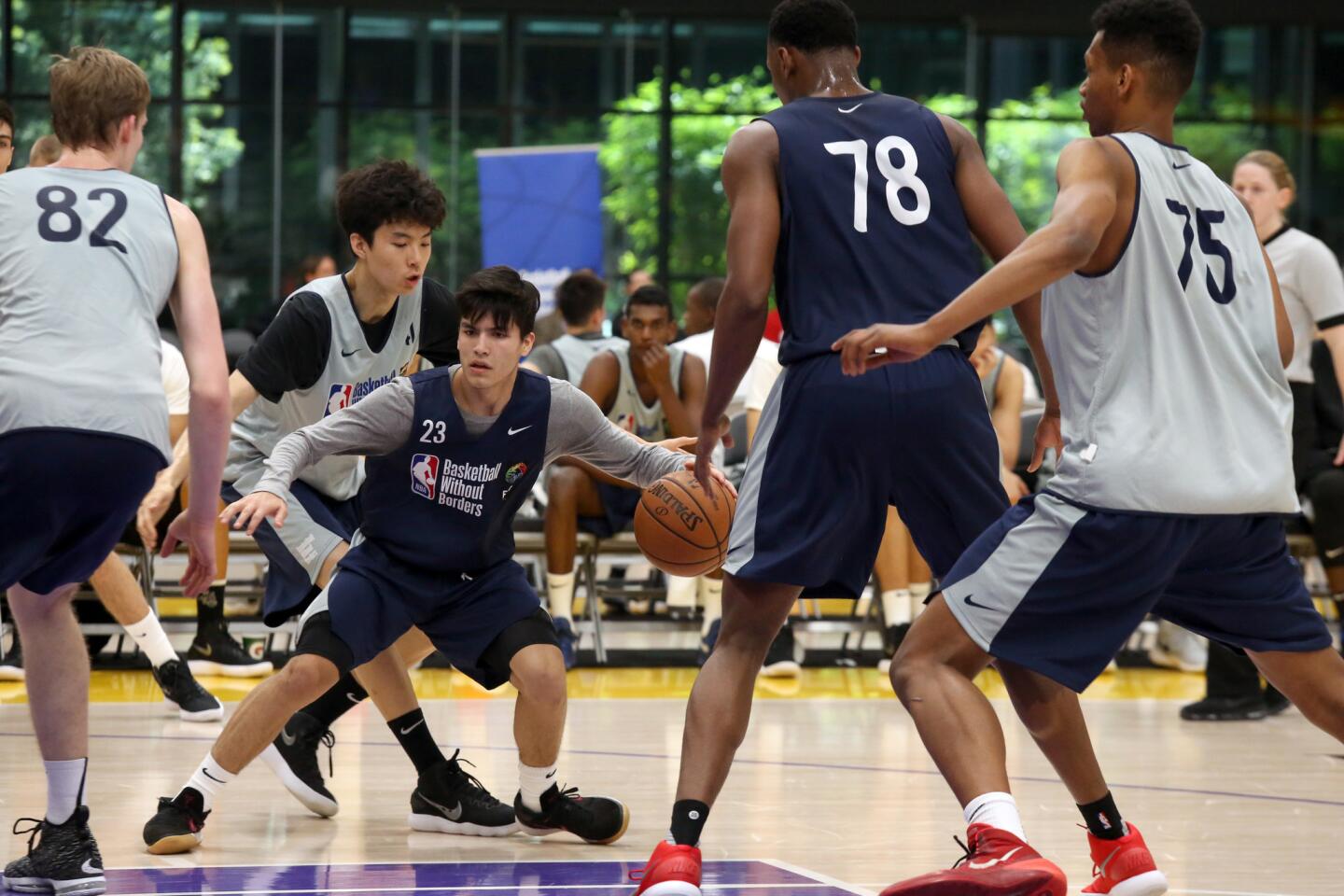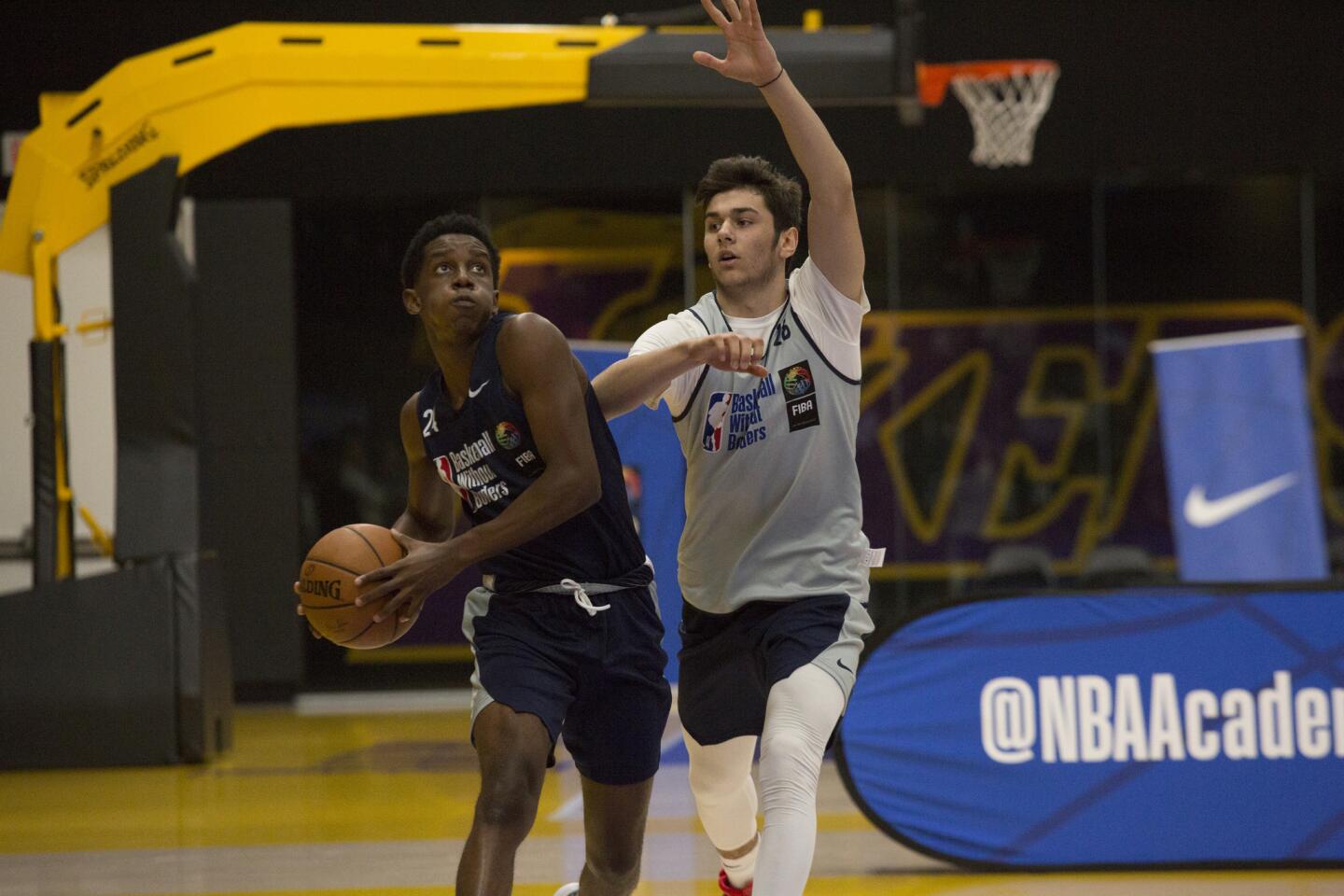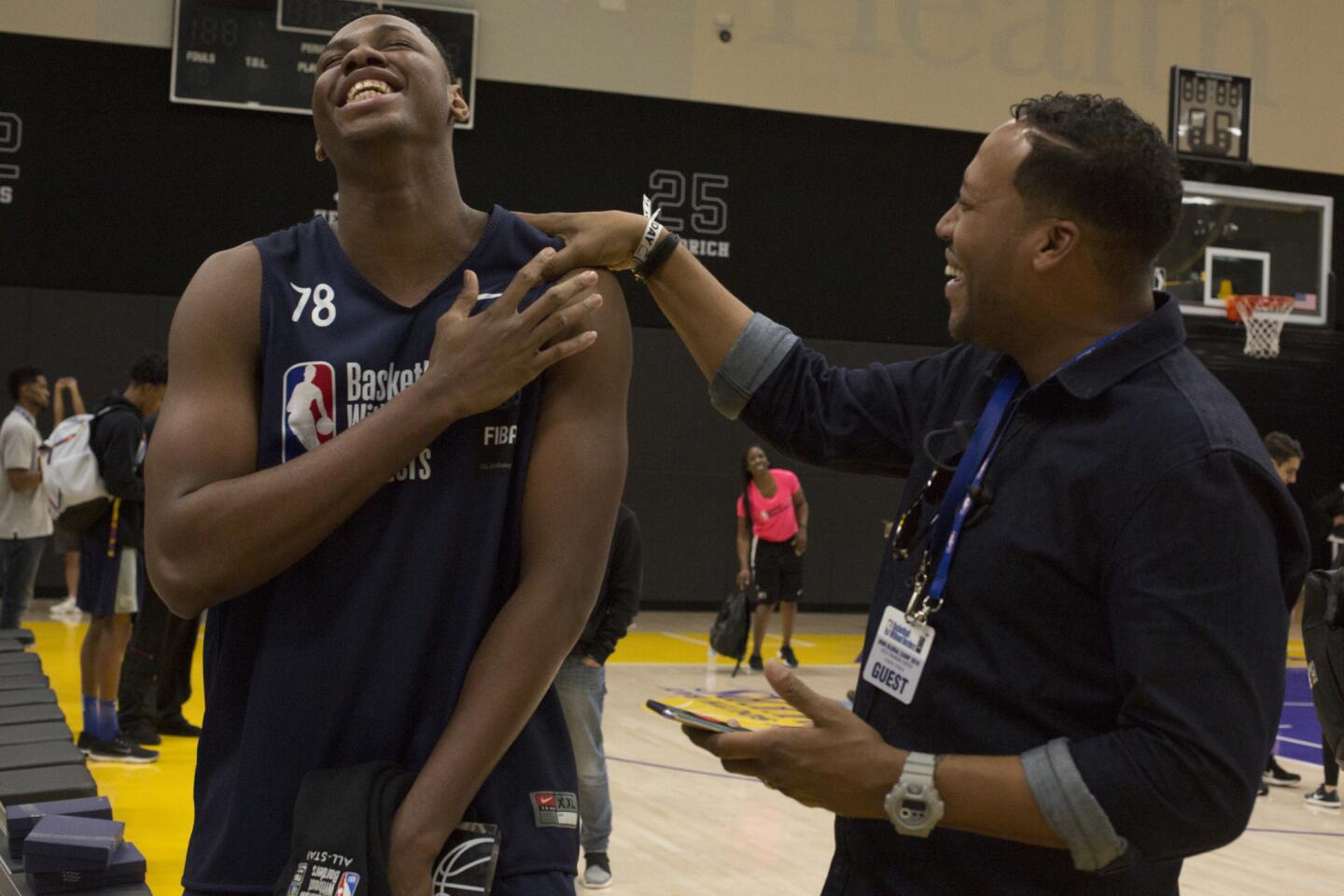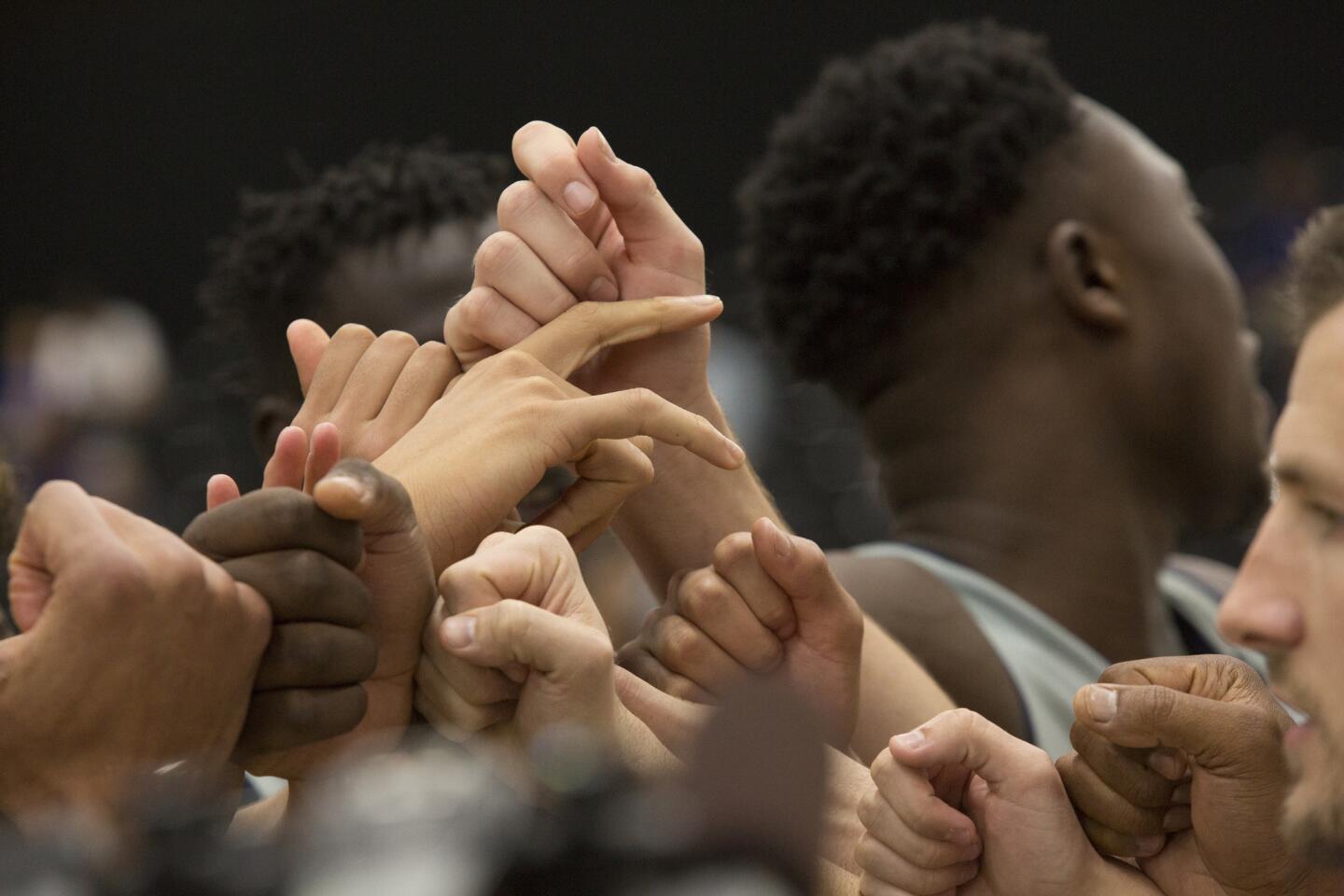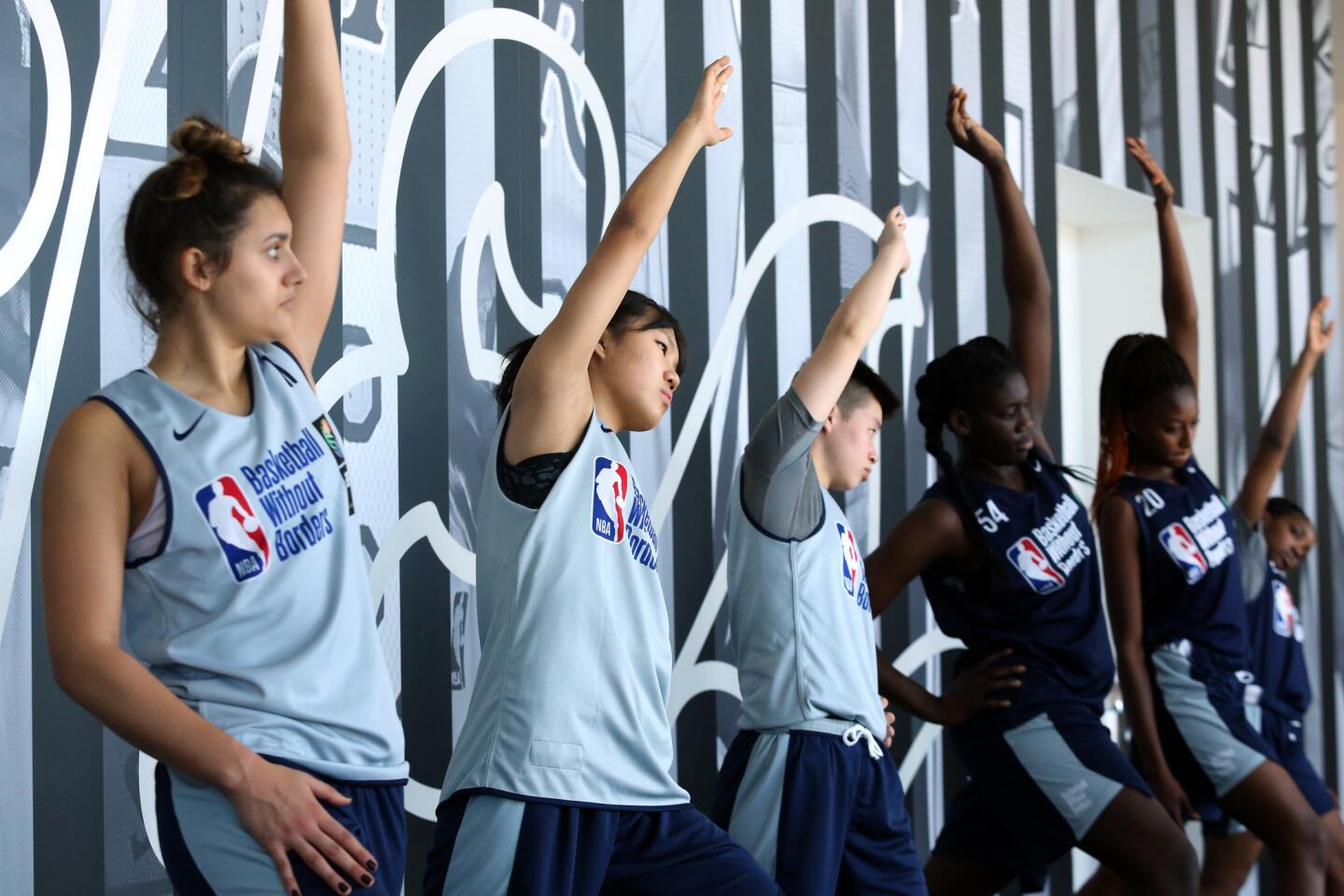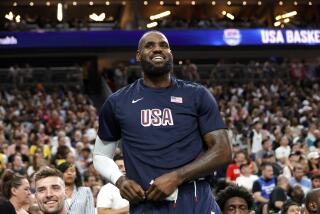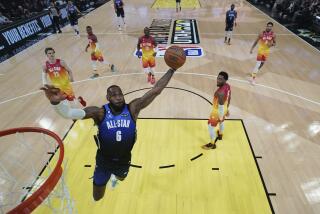Young basketball players from around the world enjoyed the experience of a lifetime at their own all-star weekend in El Segundo
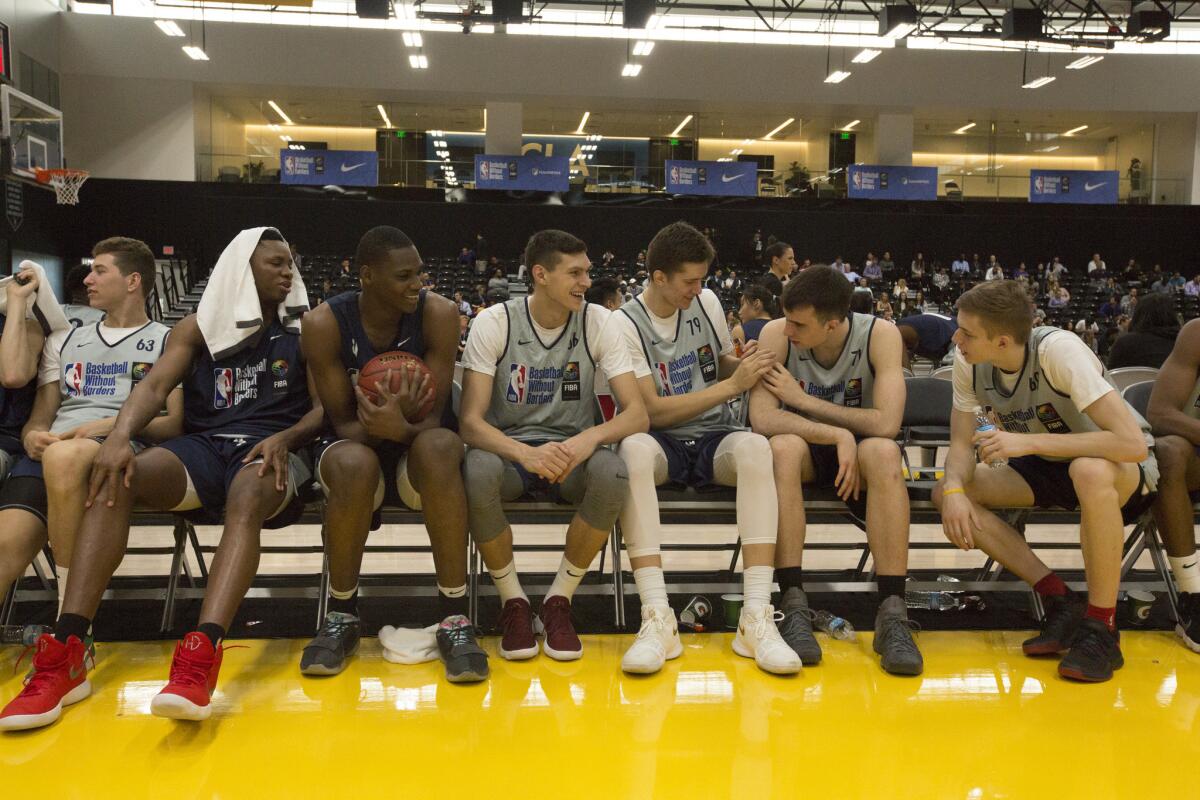
- Share via
Kobe spent the weekend working out at the Lakers’ practice facility in El Segundo. But don’t start pulling Bryant’s retired jersey down from the Staples Center rafters just yet.
Kobe King-Hawea is a sharp-shooting 18-year-old guard from Victoria, Australia, who grew up in a household in which most of the kids were named after NBA All-Stars.
“My dad, he’s a basketball freak,” she explained unnecessarily. “I have a little brother named LeBron and a sister named Jaylen-rose.”
But unlike her siblings, King-Hawea has a connection to elite basketball that goes beyond a name. As one of the best high school players in her country, King-Hawea is a talent the NBA believes is worth nurturing under a program fueled by a growth spurt that has made basketball the second-most-popular team sport in the world.
The NBA’s Basketball Without Borders initiative, launched in 2001, has reached more than 3,000 in 133 countries and territories while the Jr. NBA, the league’s global youth program, will reach more than 26 million youths in 71 countries, from Mali and Mozambique to Turkey and Tunisia. And partly because of the programs, the NBA opened this season with 108 international players from a record 42 countries.
Five of the 10 international players in the league’s Rising Stars game on All-Star weekend came through the Basketball Without Borders program, as did five top-10 picks in the past two NBA drafts.
The pinnacle of that program is the annual global camp, which last weekend brought 66 high school players from six continents and 36 countries to El Segundo for three days of training with players and coaches from the NBA and WNBA.
“It doesn’t matter where you’re from, the game is so global and international there’s no limits or boundaries,” said Toronto Raptors president Masai Ujiri, who grew up playing the game in Nigeria.
“It goes back to the name: Basketball Without Borders. That says it all. It’s opening those borders up.”
Those open borders have proven good for the sport in general and the NBA in particular. Basketball is second only to soccer in terms of the number of professional leagues worldwide, according to a survey conducted by the sports-business website Total Sportek. That survey and others rank the game, now played in more than 200 countries, as the fastest-growing sport globally.
The NBA has ridden that wave of popularity to record profits of $7.37 billion in 2016-17 — with at least part of that growth coming from international jersey sales and digital-rights deals.
But Ujiri bristled at the suggestion the NBA’s global outreach is driven by a profit motive.
“This is a not a financial thing,” he said. “This is development. This is giving youth opportunity.”
The youth agreed.
“It was very important for me to get here,” said N’Faly Dante, a 7-foot, 220-pound center who, at 16, was both the youngest male player in camp and the youngest son of a single mother from Mali.
Dante, who is playing at the Sunrise Christian Academy in Bel Aire, Kan., a prep powerhouse featuring numerous international players, has drawn interest from several NCAA Division I schools. So even if he never makes the NBA, basketball will help him get a college education he never could have received in Mali.
The same goes for Charles Bassey, a 17-year-old power forward from Nigeria and one of several Africans playing at the Aspire Basketball Academy in Louisville, Ky. He said his father is a shoe salesman raising three children, which would have made it impossible for Bassey to attend schools such as UNLV, Western Kentucky or Oklahoma — all of whom now would love to pay for Bassey’s education if he agrees to play for their basketball team.
“A lot of these players will not play in the NBA but they will play professional basketball as a career,” said Troy Justice, the NBA’s senior director of international basketball operations. “This program provides a platform for them to have exposure and training and development in order to provide for their family long term.
“This program has impacted lives that never would have been touched. There are players in this camp that never would have had the opportunity otherwise. That really is the motivation behind what we’re doing.”
For many campers, in fact, the possibility of an NBA or WNBA career was little more than a fringe benefit to the experience of spending a weekend playing a game with people from countries they’ll never visit and trying to communicate in languages they’ll never understand.
Han Xu, a 6-7 center from China and the tallest woman in camp, scrimmaged with South Africa’s Rapoo Kutlwano who, at 4-11, couldn’t get eye level with Xu’s belly button if she stood on tippy-toes. Xu happily set screens for her tiny teammate and turned her feeds into easy layups.
On the men’s court, point guard Carlos Paez of Venezuela tried valiantly to organize teammates with hand gestures and pantomime.
“Many of the players I have spoken with that are alumni of this camp have said the greatest thing that happened and the most important, life-changing thing was meeting players from multiple languages, cultures, and that really gave [them] a global perspective that [they] never had,” Justice said. “There’s great value behind basketball they are receiving as part of this camp.”
Added Ujiri: “We can’t forget the human aspect. These kids will remain bonded forever. The game brings people together.”
King-Hawea, who spent most of the weekend speaking with other campers through the translation application on her cell phone, agreed. But she wasn’t discounting the basketball either. Although the sport is big in Australia, she said she prefers the U.S. game and would like to come back to play at a Division I school and, eventually, in the WNBA.
“I think I made a stamp over here,” she said. “My name’s well known over here.”
Indeed it will be a long time before anyone forgets about Kobe.
Follow Kevin Baxter on Twitter @kbaxter11
More to Read
Go beyond the scoreboard
Get the latest on L.A.'s teams in the daily Sports Report newsletter.
You may occasionally receive promotional content from the Los Angeles Times.

